Home
>
Blog
>
>
Why Outsourcing Deposition Summaries is a breakthrough for IMEs
Outsourcing deposition summaries frees IMEs from hours of transcript review—delivering clear insights that strengthen medical opinions and speed up case preparation.
Let’s start with a quick fact: Did you know deposition summaries have the potential to streamline the review process for Independent Medical Examiners (IMEs) in personal injury litigations? As depositions capture the sworn testimonies of plaintiffs, defendants, witnesses, and experts, they reveal vital insights that can make or break a case.
Given the volume and complexity of these deposition transcripts, the process of sifting through them for vital facts requires a detailed review of the entire document. This makes summarizing depositions a herculean task for IMEs who already have to focus on other critical medical aspects of cases.
In such a context, outsourcing deposition summaries to expert deposition summary services can relieve your burden.
This comprehensive guide explores why outsourcing deposition summaries is a practical, time-saving, and strategic choice for medical experts like you, dissecting the benefits, detailed processes involved, and addressing potential challenges involved.
Cut Review Time by 60%
IMEs save 50–60% of their review time when deposition summaries are outsourced to expert teams.
Understand the Significance of Deposition Summaries
Depositions are critical components of litigation involving personal injury, product liability, medical malpractice, and worker’s compensation. These documents are typically referenced throughout litigation including mediation, arbitration, and trials. IMEs rely on deposition summaries to pinpoint medically relevant information from lengthy testimonies efficiently.
Each deposition summary is a condensed version of long depositions, which often helps IMEs focus on essential medical details needed for their expert work. These summaries are also invaluable during moments when a quick overview of relevant information is needed to prepare for trial testimony or for providing a medical opinion.
However, creating a deposition summary is a time-consuming process, especially for IMEs who may handle multiple cases and need to review extensive documentation efficiently. Even minor omissions can cause great impact in the case outcome. This lengthy process demands significant time and expertise, which can be challenging for the IMEs handling multiple other responsibilities.
Explore Our Deposition Summary Samples!
Key Steps in Summarizing Depositions
Outsourcing brings expertise, but what goes into a high-quality deposition summary? Drafting a deposition summary involves multiple steps to ensure accuracy, clarity, and utility. Let’s see the major steps involved here:
- Scanning the documents: Reading through the entire document is a must for the summarizer to identify the main focus and issues of the case. An initial scan of the document serves as a foundation for organizing and prioritizing information in the deposition summary.
- Understanding case background: Having a thorough understanding of the case can be helpful to the summarizer while condensing the voluminous depositions. A solid understanding of the case’s background helps the summarizer to identify the crucial facts to be condensed and unwanted details to be discarded. This helps them create a summary that aligns with the case context, ensuring it to be concise yet comprehensive.
- Highlighting key points: During this step, major facts, statements and details should be highlighted to ensure that they are included in the final summary. Some facts may be potential enough to alter the case outcome. This step confirms that no crucial information is omitted during the summary creation.
- Structured presentation: Presenting the summaries in a clear and structured format allows the attorneys to easily reference specific sections in the original transcript if needed. For example, based on the format chosen, either the page number or page and line numbers of the original document will be noted along with the summarized version.
- Precision: The summarizer’s goal is to distill long sections of text into concise summaries without omitting important details. An effective deposition summary might condense 10 pages into one, providing a snapshot that aligns with the original content.
- Complexity and time: The complexity of a deposition impacts the summarizing process. The transcripts of expert witnesses, such as biomechanical specialists, accident reconstructionists, or medical experts, demand careful attention to details due to the specialized knowledge required to accurately convey their testimony. This complexity can lengthen the summary process.
- Objectivity and accuracy: Summarizer should be very cautious in creating unbiased summaries. While trying to capture the essence of the testimony, the summarizer should stay away from infusing his opinions or guesses into the summary.
- Subtlety of details: The credibility of witnesses can impact a case. If witnesses changes their testimony, it may affect the trial. Therefore, summaries must capture all relevant details meticulously.
This multi-step process requires considerable time, expertise and concentration from the part of the summarizer. Therefore, outsourcing deposition summaries can relieve the IMEs and their staff of a substantial amount of time and burden, allowing them to focus on their other core medical evaluations.
"Accurate, well-structured deposition summaries ensure no critical testimony is missed—supporting stronger medical opinions and better litigation outcomes."
Why is Outsourcing Deposition Summaries Vital for IMEs?
By now, you may be thinking: Why should I consider outsourcing instead of handling summaries in-house? Here are the advantages that make it a practical solution for medical experts and IMEs.
- Cost-efficiency: Outsourcing deposition summaries often proves more cost-effective than handling the process in-house. IMEs can save on overhead costs associated with hiring additional support staff to manage this task. Moreover, outsourcing companies can offer bulk services at competitive rates, reducing costs for medical experts handling multiple cases or supporting law firms in personal injury claims.
- Quick turnaround time: IMEs often work on tight deadlines, leaving little time to work through deposition summaries in detail. Outsourcing provides quicker turnaround times, allowing medical experts to meet deadlines without compromising quality. Many providers offer efficient solutions, with short turnaround times like 3-5 business days or even expedited services for cases with urgent needs. This allows IMEs to focus on the medical aspects of the case.
- Access to expert insights: Depositions involving expert witnesses from other highly specialized medical fields may contain complex medical jargon. Understanding medical-specific testimonies can be helpful to IMEs to come precise medical opinions. Outsourcing allows IMEs to access insights of experts from the concerned fields ensuring that the summaries are not only accurate and relevant for analysis and reporting.
- Assured quality: Outsourcing providers focus solely on creating deposition summaries, ensuring high-quality outputs through multi-level quality checks and error screening. Since these summaries are crafted by experts, they are precise, clear, and crafted to meet the high standards required for litigation. This reliability can be a significant advantage, especially when cases depend on accurate interpretations of complex statements.
- High data security: Reputable outsourcing deposition summary services comply with HIPAA and ISO standards, ensuring data security and client confidentiality throughout the process. When sensitive information is handled with the highest care, it concerns IMEs on PHI data security.
- Enhanced efficiency throughout the litigation: Concise deposition summaries make it easier for IMEs to quickly reference critical information, supporting their analysis and evaluation process. These summaries provide essential support during various litigation stages, making it easier for IMEs to access case-relevant details without any hassle.
Are you wondering if your practice needs this? Let’s find out.
Here’s a quick test:
Which of these challenges have you or your team faced with deposition summaries?
- ☐ Sifting through hundreds of pages to find medically relevant details
- ☐ Balancing time between medical evaluations and document review
- ☐ Managing data security while handling sensitive medical information
- ☐ Struggling to meet tight deadlines with in-house resources
If you checked any (or all) of the boxes, outsourcing could be your next strategic move.
Tailored Summary Formats: Flexibility for Every Case Type
Outsourcing grants another advantage of using customized summary formats tailored to the needs of IMEs. Most common formats include:
- Page-wise summaries: Summaries with page-wise references are suitable for IMEs when cross-referencing with the original source.
- Topic-by-topic summaries: Organized by specific subjects or issues, these summaries help IMES in cases with multiple areas of medical focus.
- Chronological summaries: Testimonies organized in chronological timeline can be useful when tracking a patient’s medical history and treatment.
- Narrative summaries: Condensed narratives presenting the key facts in story-like format allows IMEs to quickly understand essential case details.
- Page-line summaries: Summaries that follow page and line references are ideal for depositions requiring precise references.
This flexibility in summaries helps IMEs access critical medical information in a format that suits their workflow.
Why Outsource Deposition Summaries
40%
Higher Accuracy
Experts ensure reliable testimony summaries
5 Days
Faster Turnaround
Outsourcing meets tight reporting deadlines
30%+
Lower Costs
Reduced staffing and admin effort save resources
Frequently Asked Questions
What is a deposition summary and why is it important for IMEs?

A deposition summary is a concise, structured version of sworn testimony that helps IMEs quickly identify medically relevant facts without reviewing hundreds of transcript pages.
Why do IMEs outsource deposition summaries?

IMEs outsource deposition summaries to save time, reduce workload, meet tight deadlines, and focus more on medical evaluations rather than extensive document review.
How much time can IMEs save by outsourcing deposition summaries?

Outsourcing deposition summaries can save IMEs approximately 50–60% of their transcript review time, significantly improving efficiency.
What information do deposition summaries highlight for IMEs?

Deposition summaries highlight key medical facts, expert testimony, inconsistencies, credibility issues, timelines, and statements that may impact case outcomes.
Are deposition summaries useful across different litigation stages?

Yes. Deposition summaries are useful during mediation, arbitration, trial preparation, and expert opinion drafting, providing quick access to critical testimony.
What steps are involved in creating a high-quality deposition summary?

The process includes scanning the transcript, understanding case background, highlighting key points, organizing content, ensuring precision, and maintaining objectivity.
How does outsourcing improve the quality of deposition summaries?

Outsourcing providers specialize in deposition summaries, apply multi-level quality checks, and ensure accuracy, neutrality, and clarity across complex testimonies.
Is data security a concern when outsourcing deposition summaries?

Reputable deposition summary services follow HIPAA and ISO standards, ensuring sensitive medical and legal information remains secure and confidential.
What formats are available when outsourcing deposition summaries?

Outsourced summaries can be customized as page-wise, topic-based, chronological, narrative, or page-line summaries based on IME workflow needs.
How do outsourced deposition summaries support better medical opinions?

By condensing complex testimony into clear, reliable insights, outsourced deposition summaries help IMEs form stronger, evidence-based medical opinions faster.
Is Outsourcing right for your practice?
Imagine how your workload would shift by eliminating the need to review extensive deposition transcripts. Outsourcing deposition summaries isn’t just a time-saver for IMEs, it’s a vital tool that improves efficiency, streamlines evaluation process, and keeps your costs under control. With outsourced summaries, you gain high-quality, secure, and flexible resources tailored to your medical evaluations, ready to support every aspect of your case.
Anjana
Anjana Devi Vijay is a Medical–Legal Research Analyst with seven years of experience translating complex medical and legal information into clear, practical insights. Skilled in research, analytics, and deposition summary review, she understands the documentation and workflow challenges faced in the medical–legal field. She creates concise, solution-focused content-including blogs, eBooks, and case studies- that helps attorneys, evaluators, and claims professionals improve decision-making and strengthen case outcomes.







.webp)







